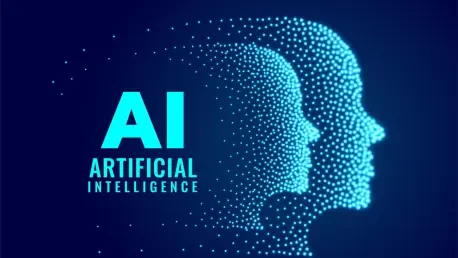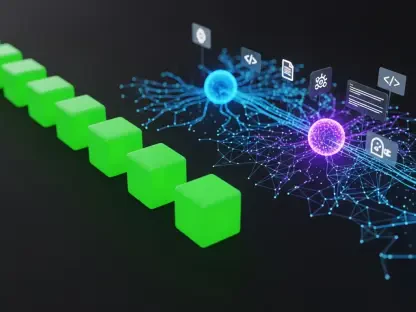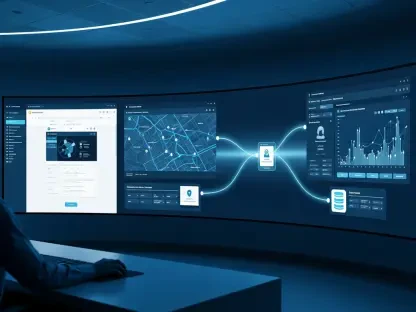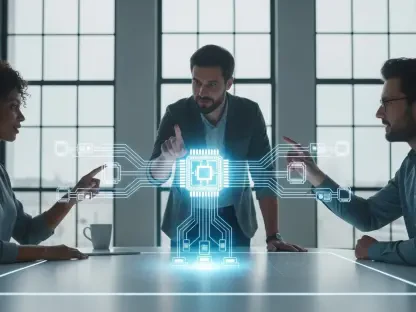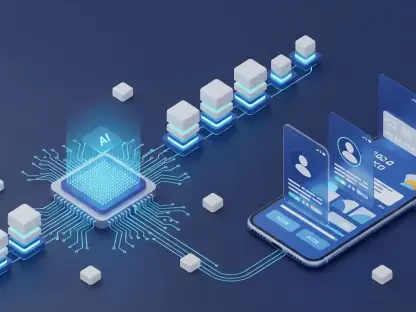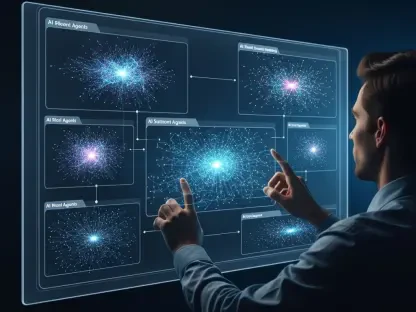Anand Naidu, our resident software development expert, is widely skilled in both frontend and backend programming. With the field of software development undergoing significant transformations due to advancements in AI, Anand offers deep insights into these changes, particularly in how coding might evolve from a hands-on task to a high-level orchestration role.
Can you explain how AI is transforming the role of software developers?
AI is revolutionizing the software development landscape by shifting the focus from manual coding to oversight and orchestration. Developers are increasingly becoming experts at guiding AI agents that perform the bulk of coding tasks. This is a major shift from traditional development roles, pushing us towards a future where understanding how to instruct and manage AI outputs becomes pivotal.
What does it mean for developers to transition from “handwriting code” to “orchestrating agents”?
Transitioning to orchestrating agents means developers will be more involved in directing AI to perform tasks, rather than crafting every detail by hand. It’s about managing and reviewing code generated by AI, which requires a different mindset. We leave behind the tactile sensation of typing lines of code and instead focus on providing high-level guidance and ensuring the AI-created solutions meet technical and business requirements.
Are there specific skills developers will need to adapt to this new role as “AI orchestrators”?
Yes, developers will need to hone critical thinking and a deep understanding of system architecture. They’ll also need to analyze AI outputs for security risks, logical errors, and compliance with best practices. Effective communication of high-level instructions to AI systems will be crucial, enabling seamless integration and maintaining the integrity of complex projects.
How might this change impact developers who enjoy controlling the code?
For developers with a passion for detailed control over their code, this change might be challenging. It shifts the focus from the joy of crafting code to reviewing and guiding AI-generated solutions. While some may feel overwhelmed, others will find the increased productivity and broader creative possibilities inspiring, as AI handles routine tasks, freeing them to focus on innovation.
In what ways do you see AI tools increasing productivity and capability for programmers?
AI tools are significantly boosting productivity by automating repetitive tasks and enhancing the speed of development processes. They allow programmers to manage larger projects more efficiently and foster creativity by handling complex, routine coding, thus providing more time for strategic planning and design.
What are some tasks where you still prefer handwriting code, despite the efficiency of AI?
While AI is incredibly efficient, there are tasks where manual coding remains essential. For example, developing intricate data models or solving unique system integration challenges might require traditional coding methods. Additionally, situations that demand a customized solution that an AI might not fully grasp might be best handled manually.
How do you envision the shrinking need for manual coding as AI models become more sophisticated?
The need for manual coding will diminish as AI models advance, becoming more aware of context and capable of handling complex interactions across system components. However, manual coding may remain necessary for very specific or novel scenarios, though these instances will likely decrease over time.
What are examples of complex scenarios where manual coding might still be necessary?
Complex scenarios requiring manual coding may include multi-system integrations, situations involving bespoke algorithms or unique business processes, and areas where clear prompts can’t fully convey the intricacies of the task. These instances necessitate a hands-on approach to ensure precision and compliance with specific requirements.
Can you elaborate on the concept of “AI orchestrator,” and what it entails?
An “AI orchestrator” is essentially a developer who manages and directs AI tools throughout the coding process. This role involves guiding AI through high-level instructions, critically assessing outputs to safeguard security and quality, and ensuring the harmonious integration of AI-generated components into larger projects.
How will the role of developers evolve in terms of providing instructions and assessing AI outputs?
Developers’ roles will evolve to include crafting clear, effective instructions for AI systems, demanding a keen understanding of project objectives and desired outcomes. They will need to assess AI outputs rigorously, checking for vulnerabilities, consistency, and alignment with best practices to ensure robust software solutions.
What critical thinking skills will be important for developers in this new paradigm?
Critical thinking will be paramount in evaluating AI outputs and making strategic decisions about component integration and system architecture. Developers will need to foresee potential issues, understand complex interactions, and adapt AI-generated solutions to fulfill business goals and address unique challenges effectively.
How can developers ensure security and adherence to best practices when reviewing AI-generated code?
Developers must adopt rigorous review processes and maintain a robust knowledge of industry standards and best practices. Security protocols need careful implementation and consistent monitoring to identify vulnerabilities or deviations from established norms in AI-generated code.
What are some tools or applications currently driving this industry-wide change?
Applications like Cursor and Windsurf are leading the way in AI-driven software development, providing platforms that enhance code generation processes. Tools like Anthropic’s “Claude Code” exemplify agentic systems that manage entire codebases, demonstrating the potential of natural language-driven, AI-based workflows.
Can you describe the functionalities of Anthropic’s “Claude Code”?
“Claude Code” is an advanced AI system that operates within the terminal and comprehends entire codebases. It facilitates complex workflows including bug fixes and feature implementations through intuitive natural language commands, providing developers with a powerful tool for efficient project management.
How do autonomous AI software engineering agents work in handling entire development projects?
Autonomous AI agents handle development projects by interpreting prompts and executing tasks across the software lifecycle. They can manage everything from initial design to final deployment, showcasing the capacity for AI to transform development processes into streamlined, efficient workflows.
What does this shift mean for businesses in terms of software delivery and innovation?
This paradigm shift promises businesses accelerated software delivery and enhanced innovation capabilities. By leveraging AI, companies can embrace rapid development cycles and experiment with novel solutions, pushing the boundaries of technological advancement with greater agility.
How can developers leverage AI to enhance their creative and architectural vision for projects?
Developers can utilize AI to focus more on strategic design and architectural foresight. By offloading routine tasks to AI tools, they gain time and resources to foster creativity, explore innovative concepts, and craft sophisticated frameworks that propel projects toward advanced capabilities and compelling user experiences.
